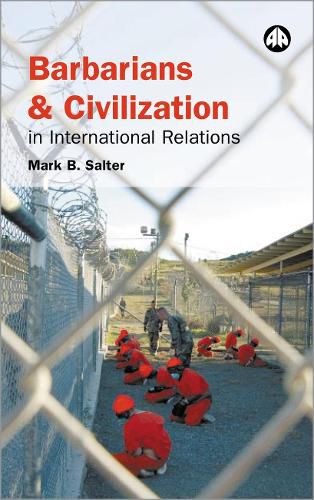Readings Newsletter
Become a Readings Member to make your shopping experience even easier.
Sign in or sign up for free!
You’re not far away from qualifying for FREE standard shipping within Australia
You’ve qualified for FREE standard shipping within Australia
The cart is loading…






The terrorist attacks in New York and Washington have led to popular conceptions of Muslims as terrorists. Some commentators have harked back to the Clash of Civilizations argument outlined by Samuel Huntington which has become a touchstone in postcolonial studies. Huntington argued that, after the collapse of the Cold War, culture would become the main axis of conflict for civilizational alliances. Mark Salter takes issue with Huntington’s theory and explains how the terms of his argument are part of an imperialist discourse that casts other civilizations as essentially barbarian. This text offers a decisive exploration of the colonial rhetoric inherent in current political discourse. Charting the usefulness of concepts of culture and identity for understanding world politics, the author illustrates the benefits and limitations of the civilized/barbarian dichotomy.
$9.00 standard shipping within Australia
FREE standard shipping within Australia for orders over $100.00
Express & International shipping calculated at checkout
The terrorist attacks in New York and Washington have led to popular conceptions of Muslims as terrorists. Some commentators have harked back to the Clash of Civilizations argument outlined by Samuel Huntington which has become a touchstone in postcolonial studies. Huntington argued that, after the collapse of the Cold War, culture would become the main axis of conflict for civilizational alliances. Mark Salter takes issue with Huntington’s theory and explains how the terms of his argument are part of an imperialist discourse that casts other civilizations as essentially barbarian. This text offers a decisive exploration of the colonial rhetoric inherent in current political discourse. Charting the usefulness of concepts of culture and identity for understanding world politics, the author illustrates the benefits and limitations of the civilized/barbarian dichotomy.